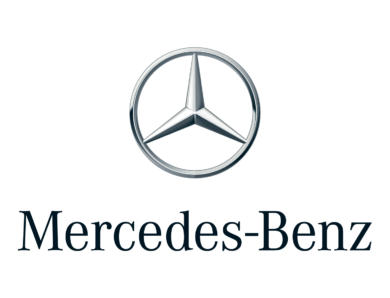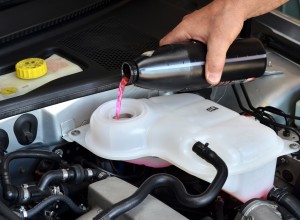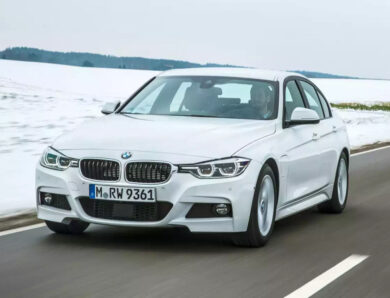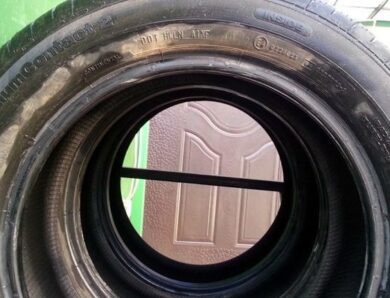How to choose an engine for a car: which must be considered before buying
Usually, before buying a new or used vehicle, the future owner is asked questions, with which engine it is better to choose a car. In this case, the potential owner must take into account the individual characteristics of a particular type of internal combustion engine.
The point is, that today the choice of available power units is quite wide. First of all, engines on cars are petrol and diesel, as well as atmospheric, compressor and turbocharged.
However, power plants differ in working volume, power, number of cylinders, layout, etc.. Also sometimes there are rotary engines, etc.. Quite obviously, what you need to know with such diversity, how to choose a car engine, as well as which engine is better to choose for the car.
Diesel or gasoline engine: which motor will be better
Internal combustion engines, which can be found under the hoods of various cars, are gasoline and diesel. Gasoline engine uses gasoline as fuel. To ignite the fuel in the cylinders, units of this type have an ignition system, the result of which is an electric spark on the spark plugs.
The diesel engine uses diesel fuel (diesel fuel), and has no ignition system. In these engines, the fuel ignites independently from strong compression and heating.
Each of these internal combustion engines has its advantages, and shortcomings. Example, gasoline unit is more common, it is cheaper and easier to maintain. However, such engines have less life, consume more gasoline, the ignition system may malfunction.
Diesel engines have appeared on cars relatively recently, at the same time differ in high efficiency, consume a small amount of fuel. The weak point of such internal combustion engines is a sensitive fuel system, the efficiency of which strongly depends on the quality of diesel fuel. Still to be considered, that the diesel engine is more expensive in repair and service in comparison with petrol analogs.
It turns out, if high top speed of the car is important, increased comfort (minimum noise and vibration), as well as cheaper service, then you should pay attention to the gasoline unit. We will note still, that HBO can be installed on such an engine without any problems.
If the first captivity is fuel economy and "traction", then the optimal solution will be a diesel engine. As for the installation of gas equipment, gas processing is also possible, however, for civilian cars it is simply impractical given the high cost and complexity of such improvements.
Gasoline engine: carburetor or injector
so, if the choice of car engine is reduced to buying a gasoline car, then we move on. The vast majority of engines in the CIS are gasoline. At the same time on domestic roads can be found as a large number of cars with injectors, and with a carburetor engine.
In short, the injector is a modern solution in the field of fuel injection. Such injection is completely electronic, the system itself takes into account, how much fuel to feed into the engine, taking into account the mode of operation and a number of features.
All processes of fuel supply and control of internal combustion engine operation are fully automated. As a result, the injector engine is economical, powerful, able to work stably in different conditions.
- As for the carburetor, today it is a very outdated mechanical device. At the same time, the mechanics are not able to flexibly and dynamically "adapt" to changing conditions during operation. An engine with such a system consumes more fuel, less stable in the heat, in the cold, etc..
Also, the carburetor needs to be serviced much more often, constantly adjust, adjust and clean from dirt. Quite obviously, that today you should not buy a car with a carburetor, preferring a more modern and economical injector motor.
Atmospheric engine or turbo engine
Let's start with that, that the atmospheric engine "draws" air into the cylinders in a natural way (due to rarefaction, which is created as a result of the movement of the pistons). Inflated there is a solution, which allows you to forcibly inject air into the engine cylinders under pressure.
Let's note at once, almost all modern diesel engines are turbocharged, as the presence of a turbocharger on a diesel engine allows to achieve the necessary power, economy and a number of other important characteristics of motors of this type. In other words, simple atmospheric diesel in a car today is quite difficult to find.
However, when it comes to gasoline engines, the situation is changing. Most of these internal combustion engines are atmospheric. The point is, that although the turbine provides a significant increase in power and torque without increasing the engine capacity, the solution both complicates the design and makes the power unit more expensive to repair and maintain.
- The turbocharged engine needs better fuel and shorter oil change intervals. It is also worth noting the reduced resource as a result of higher loads on the gasoline turbo engine.
It becomes clear, that although the power of the turbocharged engine is more, than the atmospheric counterpart with the same volume, such an engine can be considered more "problematic". First of all, small resource of an expensive turbine (close 80-100 thousand. Km.) And the engine itself (in the middle, close 200 thousand. Km. For petrol versions and 350-400 for diesels).
As for fuel consumption, on a turbocharged engine in quiet driving mode it may be lower, than atmospheric analogues under the same conditions. However, in practice, significant savings are not obtained, since a turbocharged engine usually has a driver for active drive.
Which engine capacity is better to choose
It is well known, that the larger the engine capacity, the more powerful it is. In other words, a car with a large engine accelerates better and often has a high top speed. The only exceptions are some SUVs, in which all the "forces" of the internal combustion engine are thrown on the increased passability, rather than on acceleration dynamics and high speeds.
It is important to understand, that the more power the engine gives off, the more fuel it consumes. If the annual mileage is not large, then with a cost of at least 15-20 liters can be agreed, however in cases, when the car passes in a year 30-40 thousand. Km. fuel costs can hit the budget hard.
To this should be added, that in addition it is necessary to consider also the tax on engine power, the cost of the GO policy, etc.. If we talk about the life of engines, then large-volume units often differ favorably in this respect from the "small cars". If simple, as part of daily operation, a powerful motor does not need to be strongly "twisted" to maintain the required driving speed, during intense acceleration from a standstill, overtaking, etc..
This means, that such an engine does not often run at high and maximum speeds in daily use, at the same time high revolutions mean peak loadings and considerably reduce service life of any engine.
In practice, example, 4-x liter engine may well run 500-600 thousand. Km. and more without overhaul, while the 1.4-liter unit may need to be overhauled or overhauled before 200-250 thousand. km. But there are downsides - a large engine requires more engine oil when replacing, it is more expensive to repair in terms of cost of works and spare parts, etc..
By the way, the question of motor power must be paid attention to and taking into account, which gearbox will stand on the car. If the machine is equipped with "mechanics" or "robot" (RKPV), then no special problems will arise. However, in this case, when the vehicle is equipped with a classic "automatic" with a torque converter or variator, then you should be prepared for additional power take-off from the engine with these types of transmissions.
- More to add, that GUR (power steering) and air conditioning in the configuration of a car will also further select the power of the engine. As a result, the dynamics of a small car with automatic transmission when turning on the air conditioner may be unsatisfactory.
Given the above, we can conclude that, that it is optimal to select the motor by volume and power so, that the cost of maintaining the car was invested in the projected and expected limits, while the power was still enough adjusted for driving style, personal preferences of the driver, etc.. d.
If the car is selected b / in, then it is better to buy a specific model with a more powerful engine in the line not only because of better dynamics, but also due to the greater residual life of the motor before overhaul.
Engine layout, motor location and number of valves
If we talk about different characteristics, engines differ in the number of cylinders, on the location of the cylinders, as well as the location of the engine in the bonnet space. Example, power units are 3, 4-X, 5-and, 6-and, 8-and cylindrical, etc..
According to the location of the cylinders also allocate rows, V-shaped, opposite engines, etc.. The power unit can be installed under the hood longitudinally or transversely. On each cylinder can be installed on 2, 4 and more timing valves.
Note, that the total number of cylinders should be considered only then, when it comes to choosing a minivan. To be precise, not so long ago on city subcompact cars installation of three-cylinder atmospheric and turbomotors came into practice. At the same time such internal combustion engines with three cylinders differ in the increased level of vibrations.
In all other cases, the number of cylinders to some extent determines the power, at the same time in terms of vibration is not so important, how many have a particular engine, 4, 5 or 6. Often a minor role is played by the peculiarity of the location of the engine under the hood.
The only thing, in practice, many in-line engines with 6 cylinders, installed longitudinally, differ in the increased tendency to breakdowns even at insignificant overheating in comparison with other analogs.
Usually, only the layout of the cylinders deserves special attention. There are many layout schemes, the most common are:
- in-line engines;
- V-shaped units;
- opposite motors;
The in-line motor from this list is the simplest, the cylinders go in a row above the crankshaft. This engine is easier to maintain and repair. The main disadvantage is that, that the increase in the number of cylinders is greater 6 leads to, that the motor becomes too long and cannot be placed as longitudinally, and transversely in the hood space.
We also recommend reading the article about it, which car engines are the most reliable and durable. In this article you will learn about the most famous and reliable motors, which stand out among all kinds of internal combustion engines due to its large engine life.
To solve this problem, the car is equipped with a V-shaped engine, the cylinders are no longer in one, and in two rows, and at an angle to each other. Such internal combustion engines are more difficult than in-line, they are more expensive to maintain and repair. Suffice it to mention that, that this type of unit has two cylinder heads with all the ensuing consequences. Another disadvantage is the relatively high vibration load.
Opposite engines are used only by some car manufacturers. In particular, Subaru from Japan specializes in such internal combustion engines, they are also produced by the German Porsche. Opposite motor creates a minimum of vibration, however, it is extremely difficult to maintain, not all car repair shops can perform high-quality repairs if necessary.
Now let's move on to the valves. From their number directly test the engine power, motor intake and a number of other parameters. The more valves, the better the cylinder is filled with fuel-air mixture and ventilated from exhaust gases. Thus increase in number of valves naturally leads to complication and increase in price of all design of GRM.
Today, the simplest motors have 2 valve (intake and exhaust) on each cylinder. The most common option for budget cars is in-line four-cylinder 8-valve engine. Such units are the most affordable and easy to repair. At the same time, they are the least powerful and not economical enough compared to 16-valve versions, etc..
Tips and tricks
so, if you don't know, how to choose an engine for a car, The above information allows you to answer a number of key questions. Having determined the type of unit (gasoline or diesel), it is also necessary to take into account certain features of a particular internal combustion engine.
One of the most important characteristics is power (it should be enough), and you also need to pay attention to that, how it is achieved, by increasing the displacement and using a large number of valves per cylinder or by turbocharging. If the engine is atmospheric, then the resource of such an internal combustion engine is greater, which is especially true when buying a car with mileage.
For the same reason, remember, that V-shaped engines though are atmospheric, at the same time they are much more difficult than in-line. Moreover, repair and maintenance are often at the same level or even more expensive than turbocharged engines. If we talk about the opposing power units, their low prevalence and other complexities should be taken into account.
It turns out, the simplest, reliable and affordable for the purchase and subsequent maintenance can be considered a conventional in-line atmospheric gasoline engine. The only thing, if such an internal combustion engine has everything 2 valves per cylinder, do not expect high power and good acceleration dynamics, especially on units with a capacity of up to 2.0 liters. At the same time more advanced versions (example, with 4 valves per cylinder) will not cost much more, however, engine performance will be noticeably better.
- By the way, regarding the gas distribution mechanism, you need to pay special attention to that, which drive has a particular engine. The point is, that motors happen with the chain and belt drive of GRM.
In short, the chain is considered to be a more reliable solution with increased resource. At the same time to service a chain drive is still required, and replace the timing chain, sedatives and chain tensioners are quite expensive.
The belt is structurally simpler, the cost of maintenance of such a drive is significantly cheaper than the chain. But you need to change it more often, new rollers should be installed in parallel (bypass, tension). If we talk about reliability, to eliminate the risk of breakage of the timing belt, it must be changed every 50-60 thousand. Km mileage.
However, recently to reduce the cost of construction and reduce the weight and size of the engine, many automakers have begun to install "lightweight" single-row chains. This means, that the break of such a chain is already due 100-120 thousand. Km. quite real. In other words, each 100 thousand. It is also desirable to change the chain.
- The main advantage of the chain can definitely be considered only that, that it seldom breaks suddenly, unlike the belt. At wear and weakening the chain at first makes noise, which indicates to the driver the need to maintain the element. In the case of a belt, the breakage may occur suddenly, and the result of a break, and as a belt, and chains, usually there is, that in the engine wick valve.
It turns out, when choosing an engine must be considered, which timing drive has a specific motor. If you plan to buy a car with mileage from 100 thousand. Km. and more, moreover, the power unit has a chain, then in most cases you should be prepared for significant additional costs to replace the chain.
As a result
Knowledge of that, how to choose an engine for a car, allows you to make the right choice of internal combustion engine. We have listed the main points above, which should be taken into account when selecting a power unit. As practice shows, you need to follow the rules of the "golden mean", and for the car engine it is especially actual.
The power plant must provide the necessary balance of power and torque. Fuel consumption is also important, as well as the overall reliability of the engine, its maintainability, the cost of scheduled maintenance, spare parts and unscheduled repairs.
Be sure to consider these features before purchasing a vehicle, comparing them with your own budget. pay attention, The most common mistake is to buy the lowest power engine with a small volume, and too powerful power unit.
We also recommend reading the article about it, which is better, timing chain or belt. In this article you will learn about the advantages and disadvantages of chain and belt drive of the timing mechanism.
In the first case, a car with a weak engine just "does not go", and the internal combustion engine itself often has a small resource. In the second case, a powerful engine has to pay for high fuel consumption and maintenance, moreover, in the framework of daily operation, this capacity can be considered excessive.
Finally, note, that when selecting a new car, primarily, you need to pay maximum attention to the reliability of the engine, and only then other characteristics. It is important to choose such a power unit, which will still have a fairly large residual resource, that is, they do not require the owner to make significant investments during, at least, 100-150 thousand. Km.




